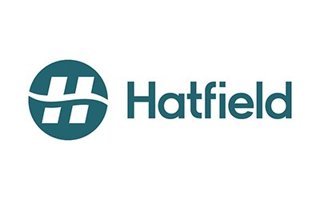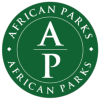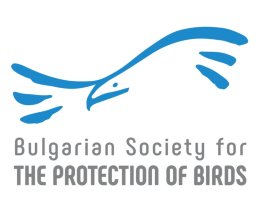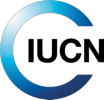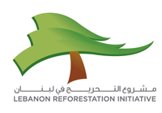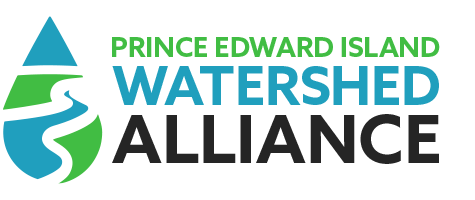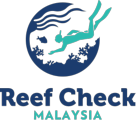Consortium
Faculty ITC is the University of Twente’s Faculty of Geo-Information Science and Earth Observation. ITC is among the world's top ten institutes for academic education, scientific research and technology development in earth observation and geo-information. Our people are engage worldwide in realising the United Nations Sustainable Development Goals for biodiversity, food security and agriculture, energy transition, geo-health, climate change adaptation, urban development and smart cities, disaster risk reduction, and land administration. ITC's core activities education, research and project services are executed by staff from six geoscience departments, which operate as centres of excellence covering the different application and development fields. People involved: Wieteke Willemen (Project Manager), Jasper Van doninck (Technical Manager), Wietske Bijker (Capacity Development Work Package Manager), Chiel Stroeven (Project Support Officer). | |
The 52°North Spatial Information Research GmbH was founded in 2006 by the Institute for Geoinformatics Münster and the con terra GmbH. It coordinates an international network of partners from research, industry and public administration. Its mission is to facilitate the availability and use of spatio-temporal data by innovating the methods and technologies for creating, managing, sharing, analysing and visualizing the derived information. For this purpose, 52°North conducts research as well as professional consulting and software development projects. People involved: Matthes Rieke (EO Solution Development and Implementation Work Package Manager), Jan Speckamp, Martin Pontius. | |
DHI is a self-owned, independent not-for-profit research and consultancy organisation that builds competence and promotes technological advancement in areas relevant to water, environment, and health. Established 50 years ago in Denmark, DHI has experienced sustained growth and now operates 30 offices globally, maintaining a workforce of approximately 1,100 full-time professionals. DHI provides advisory services and software, often evolving into tailored Decision Support Systems with smooth integration of data and modelling tools in resilient and robust IT environments, to clients in more than 115 countries. The most important business areas for the EO branch of DHI comprise water resource mapping and monitoring, including hydrological and water balance modelling, development and setup of water body mapping and monitoring routines as well as international capacity building activities. People involved: Michael Munk (Large-Scale Demonstrations Work Package Manager), Mads Christensen, Silvia Huber, Gyde Kruger. | |
Hatfield is a privately-owned, multidisciplinary company providing consulting and applied research services in environmental, social, and geomatics sciences to public and private-sector clients in the infrastructure, energy, mining, and natural resource sectors. Hatfield’s head office is in Vancouver, Canada, Hatfield’s extensive international activities are supported by offices in Indonesia and Botswana. Hatfield is a trusted advisor to government, private sector, and non-government clients on the appropriate development and use of remote sensing and geospatial technology for environmental monitoring and management. Hatfield’s collaborative approach is client-focused and seeks to provide solutions that are practical and cost-effective. We work with a range of external experts when required to benefit our clients. People involved: Andy Dean (User Engagement and Requirements Consolidation Work Package Manager), Marcos Kavlin (User Engagement, Requirements Consolidation, and Terrestrial Algorithm Task Lead), Victor Tang, Olivier Tsui. |
Early Adopters
Early Adopters are conservation NGOs/CGS that have expressed an interest in the novel EO solution developed by the project, foresee a clearly defined use of the EO products/solution in their operational practices, and are willing to participate to the design and development of the EO solution and to support the research and innovation activities of PEOPLE-ECCO. The Early Adopters in PEOPLE-ECCO are distributed over four continents, and the ecosystems they jointly manage cover a range of terrestrial and aquatic ecosystems. Early Adopters are critical to the success of PEOPLE-ECCO.
African Parks (AP) is a non-profit conservation organisation that takes on total responsibility for the rehabilitation and long-term management of protected areas in partnership with African governments and local communities. AP’s approach combines world class conservation practice with business expertise. AP currently manages 22 protected areas in 12 countries covering over 20 million hectares. AP operates globally with entities across Africa, with a head office in South Africa and offices in the Netherlands, Switzerland, United States, Germany, United Kingdom and Hong Kong. African Parks is ambitiously aiming to manage 30 protected areas by 2030, across 11 biomes, totalling 30 million hectares contributing to the global target of protecting 30% of the Earth. | |
The Bulgarian Society for the Protection of Birds (BSPB) is one of the largest environmental Civil Society Organisation in Bulgaria, which was founded in 1988 and has been working for 35 years to preserve wild birds and their habitats for the benefit of nature and people. It is the national partner of BirdLife International. BSPB is a citizens’ society organization with a real membership and structures across Bulgaria. Its work focuses on implementing the concept of the Important Bird Areas and establishing functionally connected network of Special Protection Areas (SPAs) as a cornerstone of the Natura 2000 network. A central component of BSPB’s work is dedicated to conserving globally threatened species, among which many raptors, by applying a diverse range of conservation measures to mitigate threats facing them at national and international level along the flyway. BSPB has a team of about 35 people and operates at national level with 6 regional offices. BSPB has successfully implemented over 15 LIFE projects and has received the prestigious “Best of the Best LIFE Nature projects” Award of the EU for an Imperial Eagle conservation project. BSPB’s experts have been recognized at international level and three of them received the prestigious Whitley Award for their conservation work in Bulgaria. | |
Headquartered in Switzerland, the International Union for Conservation of Nature (IUCN) was established in 1948. It is an international authority working on a wide range of themes related to nature conservation, forests, ecosystem management, protected areas, global policy and governance and rights. Present in Vietnam since 1993, IUCN operates under an automatically renewing 5-year Memorandum of Understanding (MOU) with the Ministry of Foreign Affairs. Vietnam is a State member of IUCN. A strength of IUCN is its ability to facilitate alliances and build networks among stakeholders. Its close relationship with the Vietnamese government helps IUCN communicate with and secure support for sometimes controversial measures such as the shift to less intensive but higher value farming systems in Vietnam. | |
The Lebanon Reforestation Initiative (LRI) is a Lebanese NGO registered at the Ministry of Interior and Municipalities under no. 1186 on 18 June 2014. LRI started as a project launched in 2010 by the United States Forest Service (USFS) Office of International Programs (IP) through the support and funding of the United States Agency for International Development (USAID). LRI aims to expand, manage, and protect Lebanon’s forests and landscapes through a community-based approach. LRI works on building resilient communities to environmental threats, increasing environmental awareness and education, advocating for forest conservation, and advancing research in the forestry field. LRI’s objectives include: (1) support municipalities and local community members to develop and implement forest management plans in their village; (2) bring diverse communities together and support them to advocate for improved forest management policies; (3) identify and develop research gaps throughout the different fields of ecological restoration and wildlife conservation that hinder the sustainability of landscape management; (4) provide technical assistance to relevant local stakeholders. | |
Prince Edward Island Watershed Alliance is non-profit cooperative association of watershed management groups on Prince Edward Island, Canada. Its mandate is to improve and enhance the environmental quality of PEI watersheds for the benefit of all residents. PEIWA is umbrella organization that provides support for 25 island watershed groups-covering 95% of PEI. The Alliance empowers Island watershed groups to achieve their goals by promoting cooperation, by serving their needs and by providing a strong, united voice in addressing Island-wide watershed issues. | |
Reef Check Malaysia is part of the world-wide Reef Check network. Since it was registered in 2007, Reef Check Malaysia has become established as a leader in coral reef conservation in Malaysia. RCM’s main sites of operation includes Tioman island, Mantanani island and the Mersing Group of islands. Reef Check Malaysia’s activities are organised around four core programmes: 1) EcoAction: training survey divers and conducting coral reef surveys at over 200 locations around Malaysia to monitor coral reef health; 2) Management: working with stakeholders to improve the management of coral reefs in Malaysia to secure long term conservation goals; 3) Science: conducting studies on reef resilience and rehabilitation to better understand coral reefs and impacts; and 4) Advocacy: raising awareness of the importance of coral reefs and the valuable ecosystem services they provide. |
Advisory Board
The Project Advisory Board is composed of representatives from authoritative organisations and leading experts in the domain with the aim of providing expertise and guidance to ESA on the project. The support of the Advisory Board to the project consists of sharing complementary knowledge and providing recommendations in relation to the domain, to ensure that the project corresponds to the priorities set out by the international community and that it applies state-of-the-art approaches to promote and facilitate the adoption of EO solutions in the application domain, properly addressing the EO opportunities and the challenges ahead. The Advisory Board also facilitates access to complementary data, tools and networks that can support the project implementation.
Our advisory board consists of:
- Randall Jimenez, IUCN
- Amanda Fronzi, WWF Italy
- Dr. Grace Nangendo, WCS Uganda
- Dr. Petteri Vihervaara, SYKE





